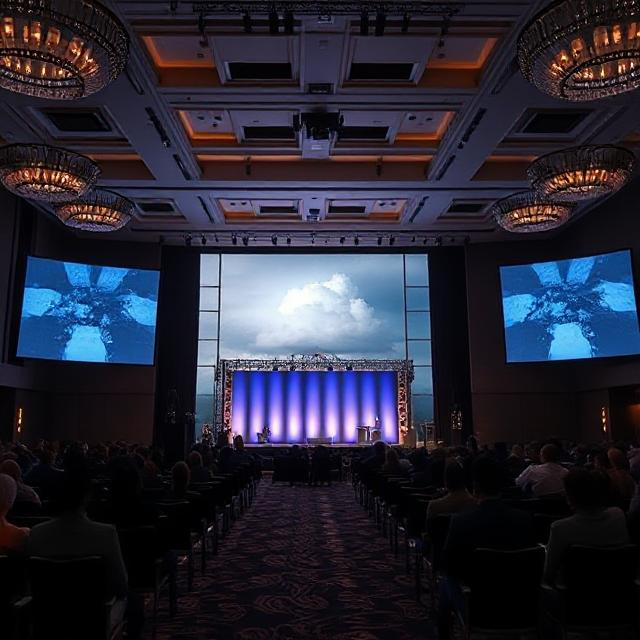From conferences and trade shows to weddings and concerts, planning events takes months of preparation and significant financial commitment. But what happens when something unexpected forces a cancellation or postponement.
Whether it’s a natural disaster, a venue shutdown, or a global pandemic, event disruptions can lead to substantial financial losses. That’s where Event Cancellation Insurance steps in—offering a financial safety net when the unforeseen threatens your investment.
In this post, we’ll break down how event cancellation insurance works, what it covers, real-life use cases, and how to choose the right policy for your specific needs.

🎯 Why Event Cancellation Insurance Matters
Event planners, businesses, and even individuals often overlook the risks involved in organizing an event. But one sudden twist—a storm, vendor bankruptcy, or illness of a key speaker—can derail everything.
Key reasons you need event cancellation insurance:
- Non-refundable deposits and payments
- Loss of anticipated revenue (ticket sales, sponsorships, etc.)
- Rescheduling costs (venue change, new vendors)
- Legal liability or contractual obligations
With the growing number of high-profile cancellations in recent years, having insurance isn’t just smart—it’s essential.
🧾 What Does Event Cancellation Insurance Cover?
Coverage varies by policy and provider, but most event cancellation insurance includes protection for:
✅ Covered Events & Losses
- Natural disasters (hurricanes, floods, earthquakes)
- Extreme weather conditions (snowstorms, high winds, etc.)
- Venue issues (fires, closures, power outages)
- Terrorism or civil unrest
- Communicable disease outbreaks
- Key person unavailability (e.g., a performer, speaker, or officiant)
- Loss of revenue from ticket sales, sponsorships, or advertising
- Expenses incurred in rescheduling or relocating the event
❌ Common Exclusions
- Lack of ticket sales or low attendance
- Voluntary cancellation (e.g., change of mind)
- Pre-existing issues known at the time of purchase
- Pandemics (sometimes excluded unless specifically added)
Always read your policy carefully to understand what’s covered—and what’s not.
📌 Who Needs Event Cancellation Insurance?
While anyone hosting a significant event should consider it, these groups benefit the most:
- Corporate Event Organizers (conferences, training, trade shows)
- Wedding Planners and Couples
- Nonprofit Organizations (fundraisers, galas)
- Musicians and Promoters
- Film and TV Producers (shoot schedules & location disruptions)
- Sports Event Managers
If your event involves contracts, ticketed revenue, or large upfront investments, cancellation insurance is worth exploring.
🔍 Real-Life Scenarios Where It Paid Off
🎤 Music Festival Cancellation
A summer music festival was canceled due to unexpected flash flooding. The organizers had already paid artists, rented stages, and secured vendors. Thanks to event cancellation insurance, they recovered over $2.1 million in losses.
💍 Wedding Rescheduling
A luxury wedding had to be postponed when a wildfire threatened the venue. The couple had non-refundable deposits with the florist, photographer, and caterer. Their insurance reimbursed them, and they were able to reschedule at minimal additional cost.
🌐 Corporate Conference Interrupted by Travel Ban
A global tech summit was canceled due to international travel restrictions. With insurance in place, the organizers were able to refund sponsors, vendors, and attendees without taking a massive financial hit.
📊 What Affects Your Premium?
Several factors impact the cost of event cancellation insurance:
- Event size and budget
- Location and time of year (weather risk)
- Type of event (private vs. public, ticketed vs. non-ticketed)
- Coverage limits and exclusions
- Presence of a “key person” clause
On average, premiums can range from 1–3% of the total event budget, though it varies based on the risk profile.
📝 Tips for Choosing the Right Policy
- Start Early: Purchase insurance as soon as you begin spending money on the event—don’t wait until the last minute.
- Disclose Everything: Be honest about event details, venue conditions, and weather risks to avoid denied claims.
- Add Communicable Disease Coverage: If you’re planning large gatherings, ensure you have pandemic-related protection (may cost more).
- Bundle with Liability Insurance: Some providers offer package deals that combine cancellation, liability, and property insurance.
- Compare Providers: Use brokers or platforms to compare policies from multiple insurers and find the best fit.
💡 Bonus: Event Liability Insurance vs. Cancellation Insurance
While event liability insurance covers injury, property damage, or lawsuits, event cancellation insurance focuses on protecting your investment if the event doesn’t happen as planned.
Many event hosts benefit from having both policies in place for complete protection.
🏁 Final Thoughts
In today’s unpredictable world, event cancellation insurance is more than just a backup plan—it’s a vital part of risk management. Whether you’re organizing a high-profile corporate event or planning a once-in-a-lifetime wedding, this insurance gives you peace of mind that your investment is protected.
Don’t leave your big day or business event up to chance. Plan smart, insure early, and stay protected no matter what curveballs come your way.